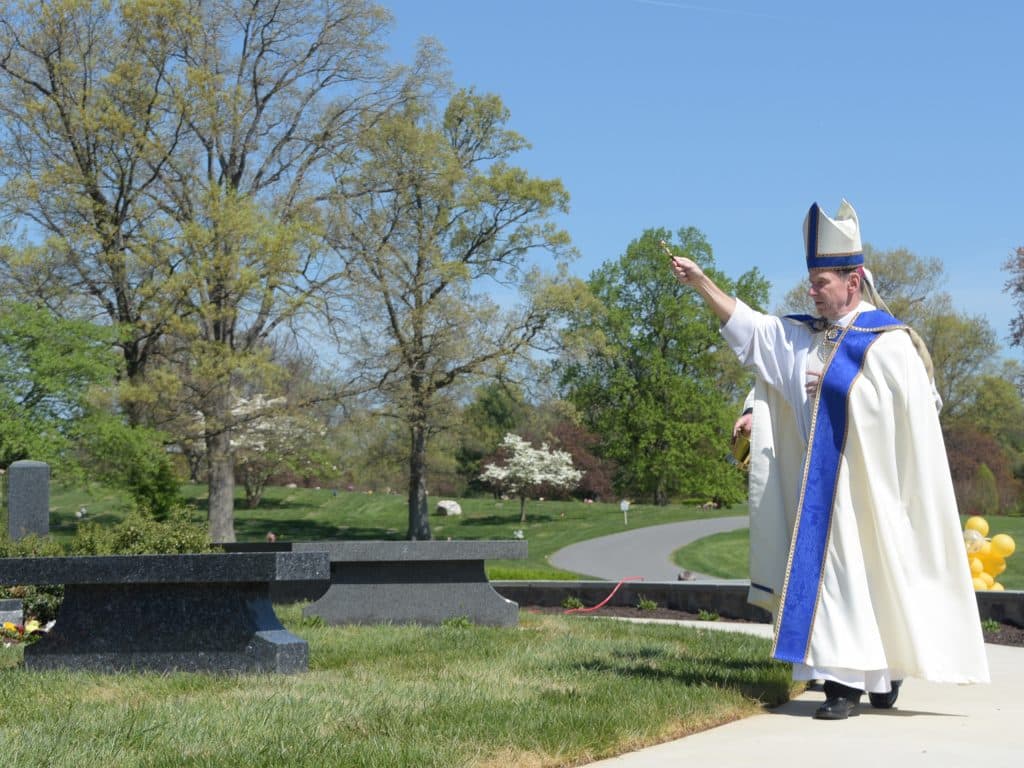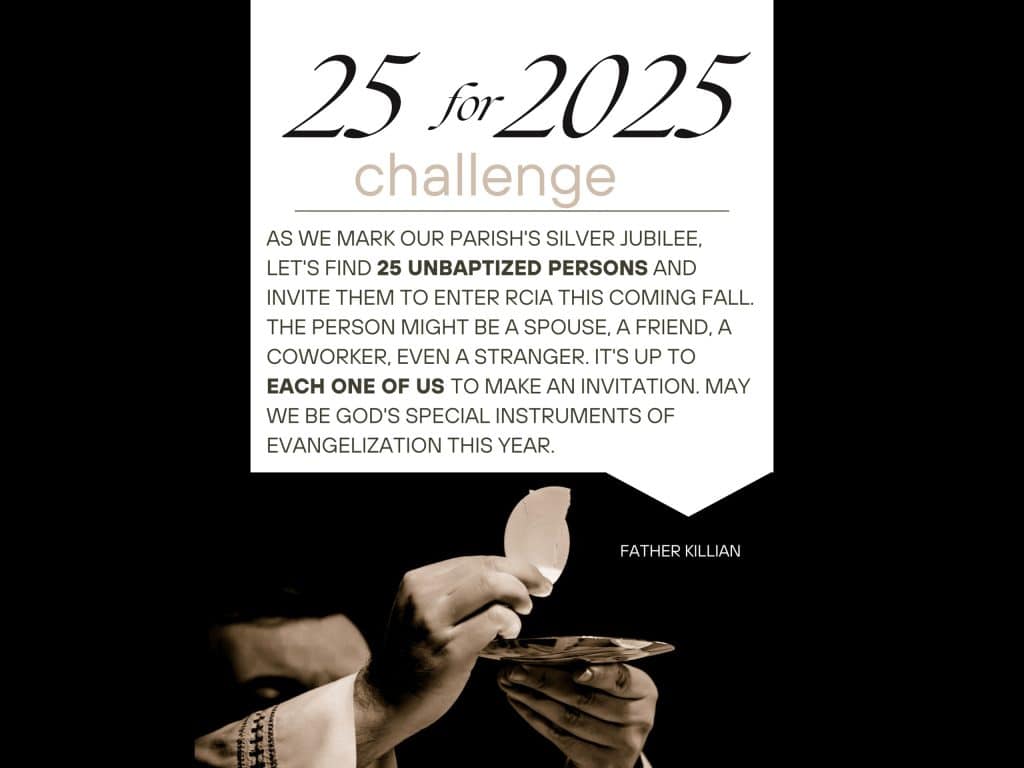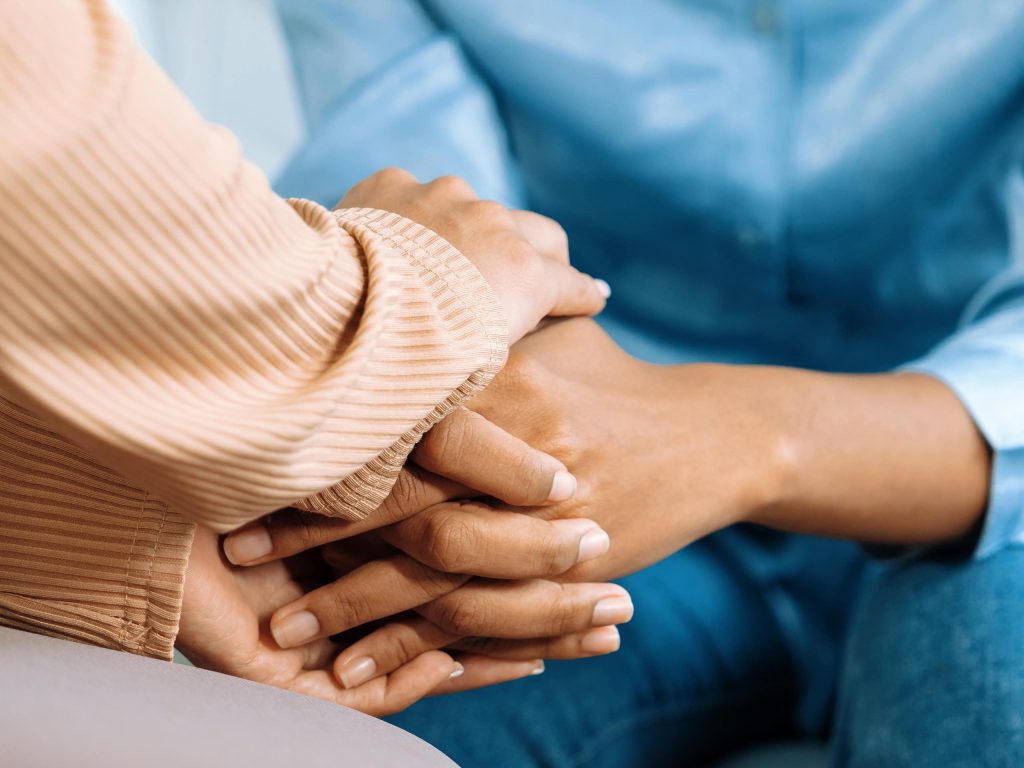Fearing for their child’s life, the parents packed up their belongings and set out at night to a foreign land to live safely.
The tale is as old as time, and could as easily apply to Mary, Joseph and baby Jesus escaping Herod’s wrath in Egypt or to Central Americans seeking to escape violence in their homeland.
According to the United Nations Refugee Agency, at the end of 2014 there were 19.5 million refugees and 38.2 million internally displaced people worldwide. In the United States, there are about 11 million immigrants in the country illegally and millions more via legal channels.
Father Donald J. Planty, pastor of St. Charles Borromeo Church, tackled the topic of compassionately and justly dealing with the immigration and refugee crisis at Theology on Tap in Arlington June 13. Though the church offers no specific policy instructions, good laws will follow informed and morally principled citizens, he said.
“Form your consciousness according to right reasoning and God’s revelation, and abandon any emotional, financial, political or other considerations,” he said.
On a fundamental level, Catholic social teaching is based on the belief that every human person is made in the image of God and deserves to be treated with dignity. Extrapolating that core belief to the topic of immigration, Father Planty presented four points. Firstly, that all people have the right to live in peace and relative prosperity within their own homeland.
“Civil societies have the grave obligation to provide opportunities for their own people’s personal security and economic security,” he said. “Richer nations also have a responsibility to help poorer nations address these issues.”
Yet if their governments fail them, people have the right to move freely within their country and to other countries, said Father Planty.
On the other hand, countries have the right to control their borders. Deciding who should or shouldn’t be allowed in a country “cannot be done for purely selfish reasons – for racist reasons, based on an exaggerated materialism,” said Father Planty.
Lastly, the dignity of immigrants, whether in the country through legal or illegal means, must be respected. “We should challenge ourselves to see Christ in the stranger and to confront our own attitudes of cultural superiority, of indifference to those who are suffering, of racism, of seeing immigrants as aliens or criminals or economic threats,” said Father Planty.
Pope Francis gave Catholics an example of love toward strangers when he brought 12 Syrian refugees to live in Vatican City this April. “We must always be converted to see (people as) made in the image of God. That conversion leads to hospitality, not hostility,” said Father Planty.
He reminded the audience that immigrants come here in search of a better life. “Immigrants are always thinking about the old country,” he said. “If they had the opportunity for personal safety and a decent life for their families, they’d stay in their beautiful hilltop town in Guatemala.”
Though fixing the immigration process in the United States is complicated and difficult, Father Planty urged Catholics to advocate for a more family-focused and employment-based plan. “We have benefited from these millions of undocumented immigrants. And the fact is, the vast majority of them are otherwise law-abiding citizens of ours,” he said.
He also noted the discrepancies in the treatment of immigrants. While they are unable to work officially or receive government benefits such as food stamps, “We have allowed them to pay taxes and buy homes and vehicles and cellphone plans,” he said. “It’s amazing how when you go out to buy, no one checks your immigration status.”
Catholics also must critically examine why people are forced to leave their native countries so that future mass migrations can be prevented.
Father Planty cited drug trafficking in South and Central America as one major reason people are forced to leave their homes. North Americans are oftentimes consumers of those illegal drugs.
Salvadoran immigrant Juancarlo Morales noted that American foreign policy can also have a major impact on the stability or instability of a country. “I was fortunate enough to come here legally and I’m a U.S. citizen now… there are a lot of people who are not as lucky as I am,” he said.
The United States’ involvement in El Salvador’s civil war unintentionally helped create the rampant gang violence within the country now. Morales noted that taking care of Salvadoran immigrants is not so much a matter of charity as of justice. “It’s just right,” he said.
Morales hopes that Americans will become more informed about the plight of immigrants and the situations abroad that force them to flee. Choosing wise politicians who can prevent these international crises is another crucial step in the right direction, he said.
At the end of Father Planty’s talk, many attendees asked questions which, as one participant noted, boiled down to one larger question – who adjudicates between a country’s right to protect its borders and the fundamental right to migrate?
“It’s up to us as citizens, as Christians, to balance all of these rights,” said Father Planty. “It’s a constant struggle.”
Di Mauro can be reached at [email protected] or on Twitter @zoeydimauro.


